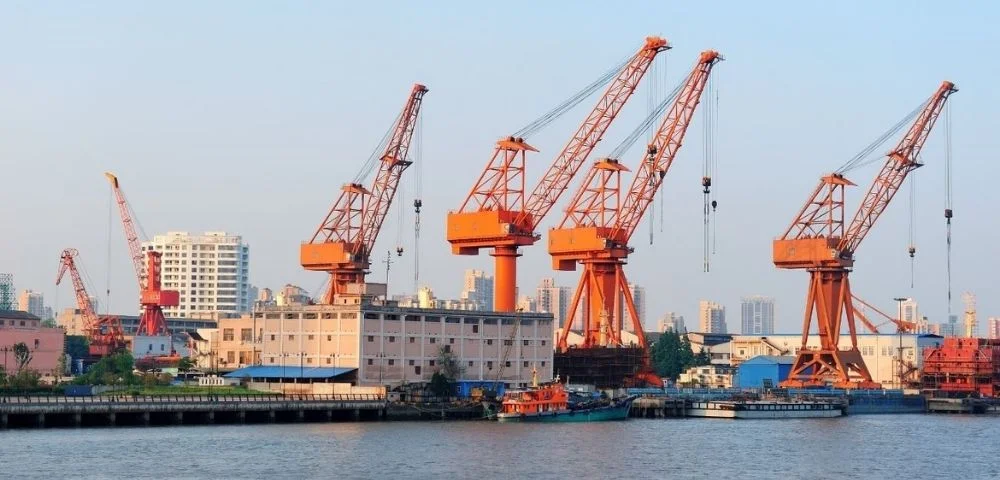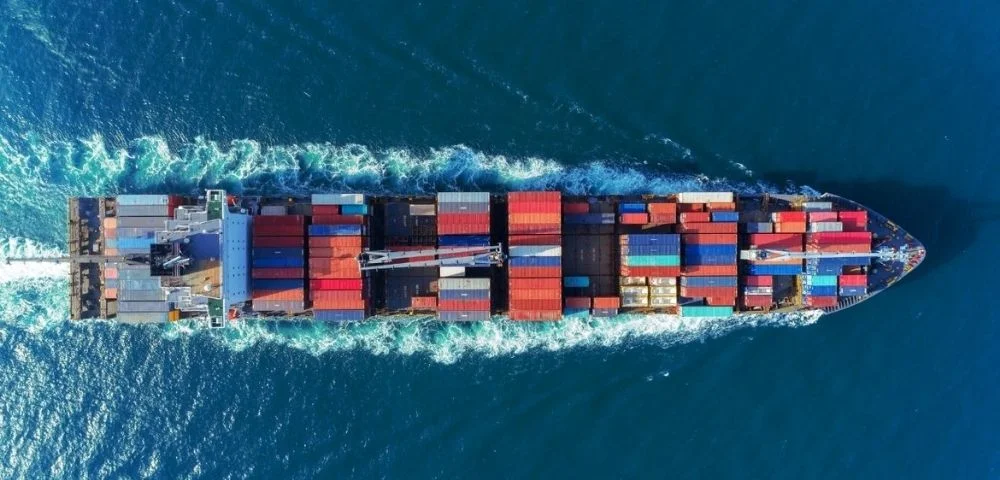Why Sea Transportation Preferred?
It is a fact that cargo ships are the most commonly preferred means of transportation for international logistics processes today. Approximately 80% of world trade is conducted through sea transportation. The main reasons for this are the large amount of cargo that can be transported in a single trip and the low cost. However, as in any logistics activity, the impacts of weather events on sea transportation can be significant.
The largest cargo ships can carry 24,000 containers. This represents a value ranging from $29 million to $135 million. Any damage or loss of a shipping container due to weather conditions can cost logistics companies millions of dollars, making it a more common occurrence than one might think.
Damages of Weather Events to Maritime Transportation
The World Shipping Council has pointed out that organizations lose an average of 568 containers annually. This figure does not include extreme weather events but covers the regular severe weather conditions that ships and ports face.
In recent years, there has been a continuous decrease in the number of containers lost at sea. According to the World Shipping Council's Containers Lost at Sea Report - 2023 Update, 661 containers were lost at sea in 2022. The report emphasizes the declining trend from incidents in 2020, such as when ONE Opus lost more than 1,800 containers in extreme weather conditions, and in 2021, when the Maersk Essen lost about 750 containers due to severe weather conditions.
Severe weather not only leads to container loss at sea but also causes delays and damages at ports. Weather conditions completely affect the port operations process, exerting the most significant influence on arrival times, cargo transfer, and storage.

WhatDoPort Authorities Think About Extreme Weather Events?
Understanding past disruptions in port operations and projecting future changes is crucial for building resilience in the global network of ports and trade. According to UNCTAD's survey, approximately 72% of port authorities reported being impacted by extreme weather events, leading to delays (60%), operational disruptions (76%), and physical damage (45%). These events underscore several key risks to port operations. Firstly, interruptions and delays in port activities can disrupt supply chains and cause economic losses. Secondly, damage to port infrastructure, including terminals and docking facilities, can impede efficient operations and necessitate costly repairs. Accidents and collisions might occur during extreme weather, posing risks to both personnel and cargo. Additionally, such events jeopardize the safety of workers, requiring robust safety protocols. Financial losses and increased operating costs further exacerbate the challenges faced by port authorities. Managing these risks demands comprehensive planning and effective management strategies to mitigate the impact of extreme weather events on port operations.
Extreme Weather Events Affecting Sea and Port Operations
Determining when to shut down facilities and cancel or delay shipments due to adverse weather conditions strikes a difficult balance between keeping crew and goods safe and ensuring profitability. While various types of severe weather require management, the following five weather events pose the greatest risk to maritime operations.
The 5 Weather Events Most Impactful on Maritime Operations
- Severe Winds: Extreme winds not only endanger crane operators but also increase the risk of dropping containers, potentially damaging other cargo or equipment. Wind can destabilize lifted containers, making control difficult for crane operators. Crane operations should be halted when wind gusts exceed 30 MPH, and if gusts are predicted above 40 MPH, the crane itself should be taken down.
- Extreme Temperatures: Ships often carry perishable goods, and temperature changes can lead to increased condensation, affecting the inside of shipping containers. Sensitive cargo is prone to spoilage, particularly in warmer weather. Mapping temperature changes is crucial to prioritize loads for timely movement, preventing damage and delays.
- High Waves: Choppy waters pose risks of items moving, falling, or breaking during transit. Coordinating loading and unloading times based on wind advisories and forecasts minimizes this risk.
- Visibility: Fog, rain, sleet, and snow create visibility issues, impacting cargo transfer and worker safety. Scheduling crew and shift work during ideal weather conditions avoids waste and enhances safety.
- Storms and Lightning: Rain slows efficiency in port operations, introduces unpredictability from wind and lightning, and creates an unsafe work environment. Managing crane operations during lightning, especially when it is within 10 miles, is crucial. Snow adds another layer, necessitating engagement with snow removal contractors to ensure safe working conditions.
Manage Loading, Transportation, and Unloading Operations Safely with Buluttan
Plan your port operations and ensure the safety of your assets and employees against unexpected extreme weather events with Buluttan's hyper-local weather intelligence. Predict penalties due to delays that may occur in the warehouse and plan accordingly.







